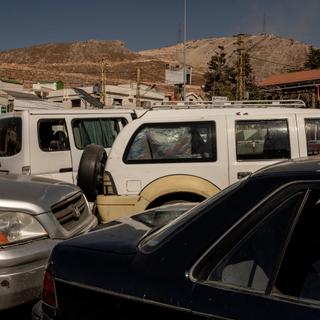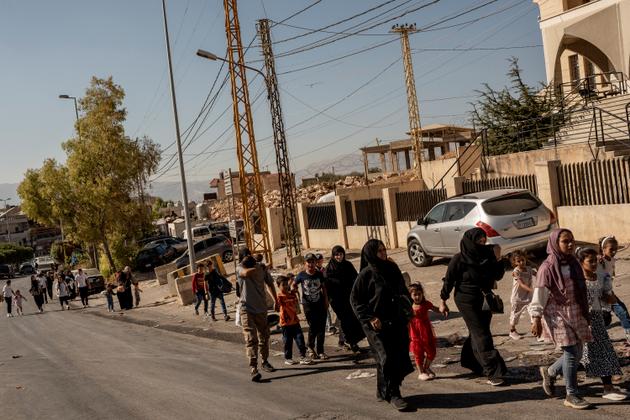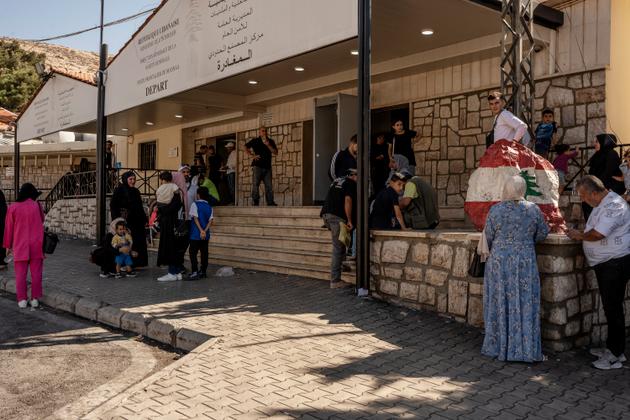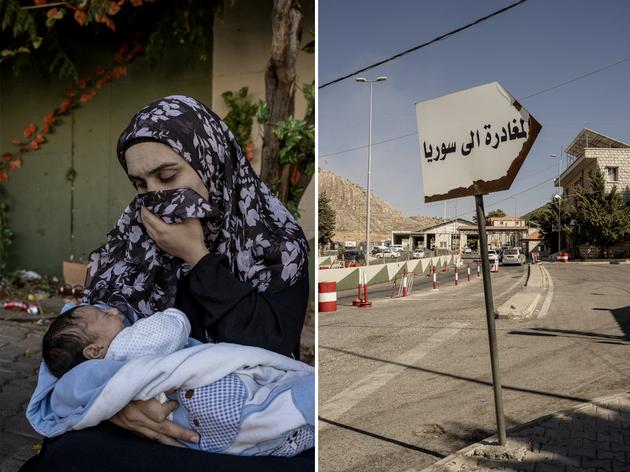


'In the southern suburbs of Beirut, it's getting worse; we've seen some very intense bombings ... we'd rather go to Syria'
FeatureAt the Masnaa border crossing, around 30,000 people in three days, mainly women and their children, have fled from Israeli strikes in Lebanon to take refuge in Syria.

The line of vehicles waiting to pass through the Masnaa terminal at the Lebanon-Syria border was growing longer by mid-afternoon on Friday, September 27. The massive strikes on Beirut's southern suburbs, which targeted Lebanon-based Hezbollah's headquarters, had not yet taken place. Nevertheless, vehicles with Lebanese and Syrian plates, along with minibuses full of women and children, were already rushing to Damascus from the Beqaa plain, Beirut and even southern Lebanon, where Israel has been conducting intense strikes since September 23.
"Since Sunday [September 22], they haven't stopped bombing our village of Aali en Nahri, near Zahle, and again today, all day long. Already 24 people have died in the village. People are still trapped under the rubble. I can't wait any longer; I'm scared, I've got diabetes and there are no more spaces in the schools that were opened for refugees in Lebanon," said Rabia Jarouch, rocked by the bombings of the past few days.

On Thursday, the 42-year-old Lebanese man took his wife, children and relatives to Damascus. He returned on Friday morning to make a final trip with his parents. None of them have relatives to go to in Syria. "Hezbollah organizes everything. They send minivans to pick up displaced Lebanese on the Syrian side of the border and put them up in hotels in Sayyidah Zaynab," the district by the Shiite mausoleum in Damascus, said Jarouch.
'We don't know anyone in Damascus'
A group of women waited to find a minibus once their exit visa had been stamped by the Lebanese border guards. "In the southern suburbs of Beirut, it's getting worse and worse; we've seen some very intense bombings. Finding an apartment elsewhere in Lebanon is very expensive, so we'd rather go to Syria. We don't know anyone in Damascus, but we'll be able to stay in a shelter," said Samia, who was traveling with two of her sisters and their six children, including three infants.

All have left behind their husbands, members of the Hezbollah. "They are responsible for clearing bombed homes in search of victims," said the woman. A man claiming to assist people in reaching the border from the bombed villages through a WhatsApp group signaled for them to board an empty minibus he found. They loaded their bags, which were bursting at the seams, onto the roof.
Next to it, Ali's minibus looked quite empty. He usually drives it through his village of Ras Al-Ain, in the Baalbek region, for school pickups. That morning, he urged his wife, a 20-year-old Syrian from Homs who has lived in Lebanon since childhood, to quickly pack a few bags for them and their three children, aged between 18 months and six. "Since Monday, there has been heavy bombing in Ras Al-Ain. Today, we decided to take off," said his wife, not knowing where their journey would lead them, other than "to Sham" (Damascus).
You have 45.13% of this article left to read. The rest is for subscribers only.
